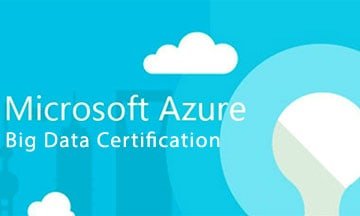Advanced Data Management Training
Course Overview
Whether small start-ups or corporate giants, all firms generate data. Gone are those days when the concept of data was limited only to technological firms. These days a diverse range of businesses use data regularly to gain a better understanding of their customers, business trends, as well as to devise efficient marketing strategies. The intense competitive sphere compels companies to become data-centred to mine valuable business knowledge. With the availability of abundant data, it becomes imperative to manage it to ensure its most advantageous utilization. This calls for Data Management that involves collecting, organising, storing, and securing this data.
What are data management and examples?
The data management process is a culmination of a combination of functions that are mutually focused to ensure that data in organisational systems is accurate, appropriate, available, and accessible.
Who can access confidential and sensitive customer information? How often are the databases reviewed for inaccuracy or errors? How much time does it take to record a customer’s engagement/interaction with the firm? How does the firm handle and create value from a large dataset?
What is the role of data management?
Dynamic data management needs to get to the bottom of these questions in a way that makes the most sense and enables businesses to make informed decisions. Firms that don’t engage in data management at any level fail to use their data the right way and risk becoming corporate dinosaurs.
Zoe Talent has introduced a Masterclass in Data Management to provide a foundation to its participants to develop an understanding of the multifarious world of data. The course discusses the latest trends and techniques being adopted globally by enterprises to make information-backed operational business decisions. The course highlights data as a corporate asset and hence includes the use of different tools that will save the organisation from being burdened with unfinished data silos, insufficient data sets and enhance the quality of data that will augment it to perform better Business Intelligence.
Course Objectives
The Data Management Masterclass aims to achieve the following objectives:
● Enable the participants to make more informed decisions backed by relevant data
● Learn techniques to make data more accessible which will transform business processes for the better
● Inculcate relevant knowledge and encourage evolvement of insight into participants to make them dedicated part of their data management teams
● Learning of user-friendly tools available to organise and access data
● Discuss techniques of data management such as data preparation, use of data pipelines, maintaining data catalogues, data warehousing, constructing data architecture, developing data governance, etc.
● Enable the organisations to gain a competitive advantage against the business rivals through timely implemented data management strategy
Training Methodology
● Interactive sessions and lectures
● Presentations
● Management games
● Role-playing/modelling
● Case studies
● Group discussions
● Problem-solving sessions
Organisational Benefits
The Masterclass in Data Management will benefit an organisation in the following ways:
● With advanced data management skills organisation will be able to work with improved data quality
● Manual processing of complex data will incur much time and cost, however, prompt data management of a large volume of data will reduce the overall cost of making data consistent and uniform
● Organisations will be able to secure their data in a better manner with minimal data losses and thefts
● Proper data management will increase data visibility which will make it easier for the organisation to obtain apt data for their analysis
● It will enhance data scalability and avert the avoidable cost of data duplication
Personal Benefits:
The Masterclass in Data Management will benefit a participant at an individual level in following ways:
● The participant will get to learn about varied and latest data management techniques in detail
● An integral part of data management is to solve problems and find solutions, hence the course will enhance problem solving skills of the participant
● Enhanced ability to process reliable information from large data and make useful conclusions
● Gain an understanding how use of data has evolved over the course of time and how it continues to evolve with throwing light on emerging trends and challenges of data management
● Gain career edge over peers with updated knowledge and practical applications
Who Should Attend?
● Data Analysts
● Data managers
● Strategic managers/general managers
● Business Analysts
● Database Administrators
● Start-up founders, Entrepreneurs
Course Outline
Module 1: Introduction to Data Management
● Fundamental concepts: data models, data independence (physical and logical), the query optimizer
● Information storage and retrieval
● Data management process
Module 2: Database Management Systems
● Types of DBMS: relational, hierarchical
● DBMS architecture
● Application of DBMS in different sectors
● Data Abstraction
● ER Model
Module 3: Developing Data Management Strategy
● Identifying key business objectives
● Creating data processes for collecting, storing, preparing data
● Identifying the right tools and technologies
Module 4: Data Integration
● Data warehousing
● Data migration
● Data integration techniques: manual integration, application-based integration, virtual integration
● Data integration in data mining
Module 5: Master Data Management
● What are MDM and its benefits to the organisation?
● Essential MDM capabilities
● Common MDM sources
● MDM use in improved customer service, personalized marketing, etc.
Module 6: Data Governance
● Why data governance matters
● Goals of data governance
● Breaking data silos
● Components of the data governance framework
● Data stewardship
Module 7: Challenges and risks to Data management
● Combating flawed data
● Lack of data insight
● Balancing data management and transparency
● Keeping up-to-date with regulatory compliances
● Handling versatile data with varied standard
Module 8: Data security and regulatory compliance
● Data encryption
● Tokenization
● Types of data security: Access control, Authentication, backups, and recovery
● Data erasure
● Data masking
● Main elements of data security
● Data regulatory compliance
Module 9: Innovation in Data Management
● Cloud data governance
● Case study: world’s first self-driving database
Module 10: Data Management Best Practices and latest trends
● Artificial intelligence automates data
● Augmented data management
● Data post
● Data Fabric











